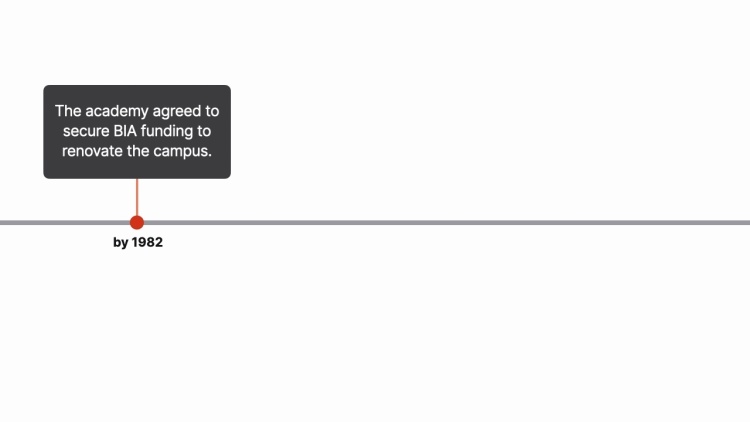Navajo Academy v. Navajo United Methodist Mission School
New Mexico Supreme Court
109 N.M. 324, 785 P.2d 235 (1990)

- Written by Sean Carroll, JD
Facts
In 1978, the Navajo United Methodist Mission School (defendant) invited the Navajo Academy (plaintiff) to share its campus. Initially, there was no written agreement between the parties, but there was an understanding that the mission school agreed to permit the academy to use the campus rent-free for an indefinite term so long as the academy offered a quality education to Navajo youth and agreed to secure Bureau of Indian Affairs (BIA) funding to renovate the campus. The academy performed its promises under this understanding. Eventually, the understanding was backed by a series of one-year leases, with a continued understanding of the long-term agreement. At some point in 1987, the parties’ relationship deteriorated, and the mission school demanded a rent of $220,000 per year. The academy did not sign a new lease in accordance with the request, and the mission school filed suit asking the court to evict the academy from the campus. The academy then filed this suit, seeking equitable relief. The trial court entered an injunction permitting the academy to remain on the campus for three years while it sought a new home. The order required the academy to vacate the campus after three years. The mission school appealed.
Rule of Law
Issue
Holding and Reasoning (Montgomery, J.)
What to do next…
Here's why 911,000 law students have relied on our case briefs:
- Written by law professors and practitioners, not other law students. 47,100 briefs, keyed to 997 casebooks. Top-notch customer support.
- The right amount of information, includes the facts, issues, rule of law, holding and reasoning, and any concurrences and dissents.
- Access in your classes, works on your mobile and tablet. Massive library of related video lessons and high quality multiple-choice questions.
- Easy to use, uniform format for every case brief. Written in plain English, not in legalese. Our briefs summarize and simplify; they don’t just repeat the court’s language.





